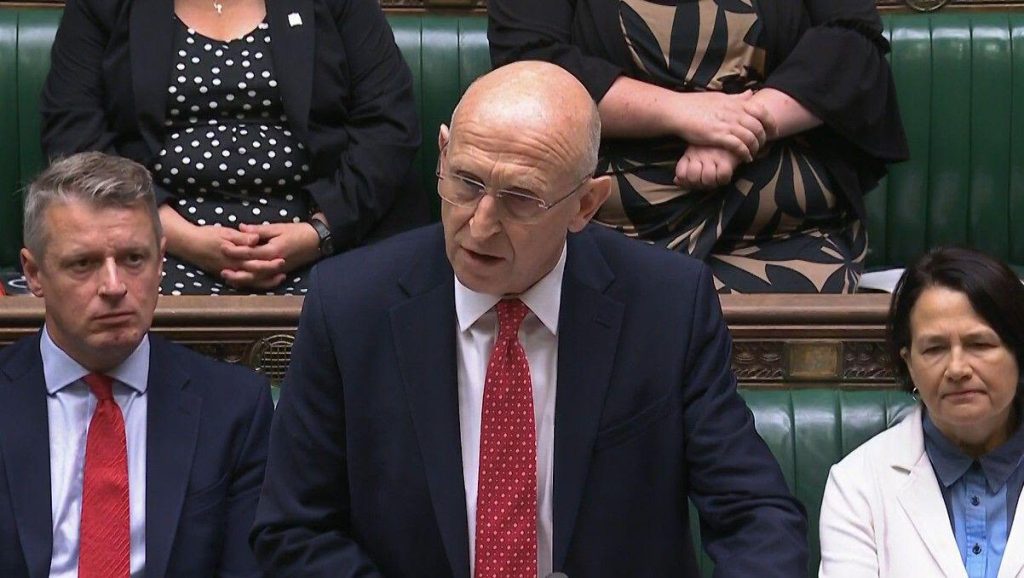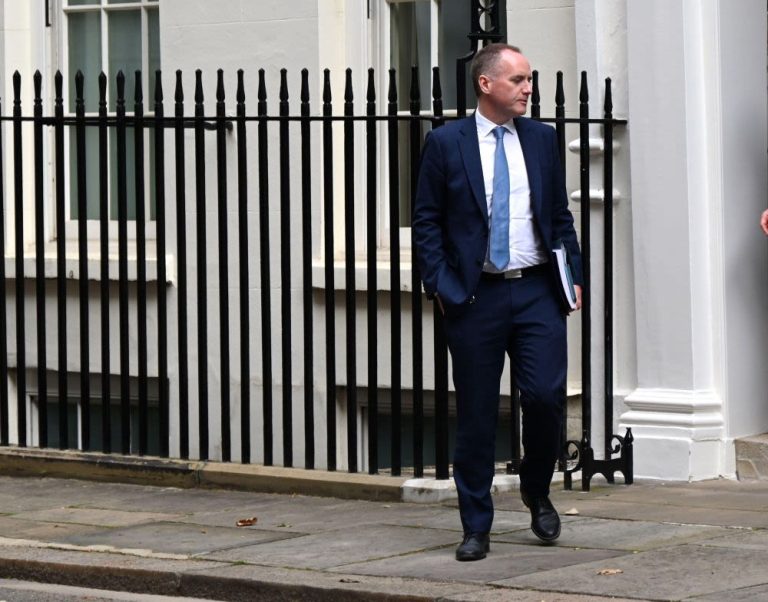
3BTEJED Screen grab of Defence Secretary John Healey making a statement to MPs in the House of Commons following the news that thousands of people are being relocated to the UK as part of a secret £850 million scheme set up after a personal data leak of Afghans who supported British forces. A dataset containing the personal information of nearly 19,000 people who applied for the Afghan Relocations and Assistance Policy (Arap) was released "in error" in February 2022 by a defence official. The breach resulted in the creation of a secret Afghan relocation scheme - the Afghanistan Response Route - in Apr
In a startling admission on Tuesday, Defence Secretary John Healey revealed to MPs that a super-injunction shielding the Ministry of Defence’s response to a critical Afghan data leak had left him feeling “deeply uncomfortable.” For the first time, he laid bare how the controversial court order prevented both the media and parliamentarians from learning how a security blunder exposed thousands of Afghan informants to life-threatening danger.
What was hidden by the super-injunction?
A super-injunction is a rare legal tool that not only bars publications from reporting on a court order but also forbids acknowledging its very existence. In this case, the injunction covered:
- The disclosure of a 2022 data breach in which a confidential spreadsheet listing nearly 19,000 Afghan asylum seekers was mistakenly circulated.
- The details of a clandestine government response code-named Operation Rubicon.
- The number of Afghans at risk and subsequent evacuation efforts.
Healey admitted that ministers decided against informing Parliament earlier, fearing that wider knowledge would amplify the Taliban’s ability to seize the leaked data.
How the leak occurred
According to reports, a defence official accidentally emailed the sensitive list—which included names, roles, and sometimes the identities of serving MPs and senior officers—to an unauthorised recipient. That individual then threatened to publish it on social media. The list comprised those who had assisted British forces under the Afghan Relocations and Assistance Policy (ARAP) after Kabul fell to the Taliban in 2021.
Operation Rubicon: the covert rescue mission
Once the leak was discovered, the government launched Operation Rubicon, an urgent and secretive programme designed to:
- Prevent the data from spreading to the public domain.
- Identify at-risk Afghans whose information was compromised.
- Evacuate or relocate those individuals to the UK under special asylum provisions.
The operation, carried out over the past two years, is estimated to have cost up to £7 billion, according to defence sources.
Healey’s apology and parliamentary privilege
Standing at the dispatch box, Healey apologised “on behalf of the government” to anyone affected by the incident. He stated that approximately 24,000 Afghans—comprising military personnel and their families—have since been granted asylum in the UK. Yet he acknowledged the discomfort caused by the legal restrictions: “Members of this House, including you, Mr Speaker, have been subject to this super-injunction. It has been deeply uncomfortable to be constrained from reporting to this House.”
Independent review by Paul Rimmer
The super-injunction was lifted following an independent review commissioned by Healey and led by former Whitehall official Paul Rimmer. The review aims to determine:
- How and why the data breach occurred.
- Whether procedures were followed correctly in issuing the injunction.
- The lessons to be learnt to avoid similar incidents in future.
Rimmer’s findings, expected later this year, will inform recommendations for data-handling reforms across government departments.
Wider implications for national security
This episode has triggered wider debate about balancing operational secrecy with democratic oversight. Critics argue that blanket injunctions undermine freedom of the press and parliamentary scrutiny, while defenders maintain they are sometimes necessary to safeguard lives in conflict zones. Healey himself conceded that transparency must be weighed against immediate security threats, but vowed to restore full accountability: “Full accountability to Parliament and freedom of the press matter deeply to me. They’re fundamental to our British way of life.”





